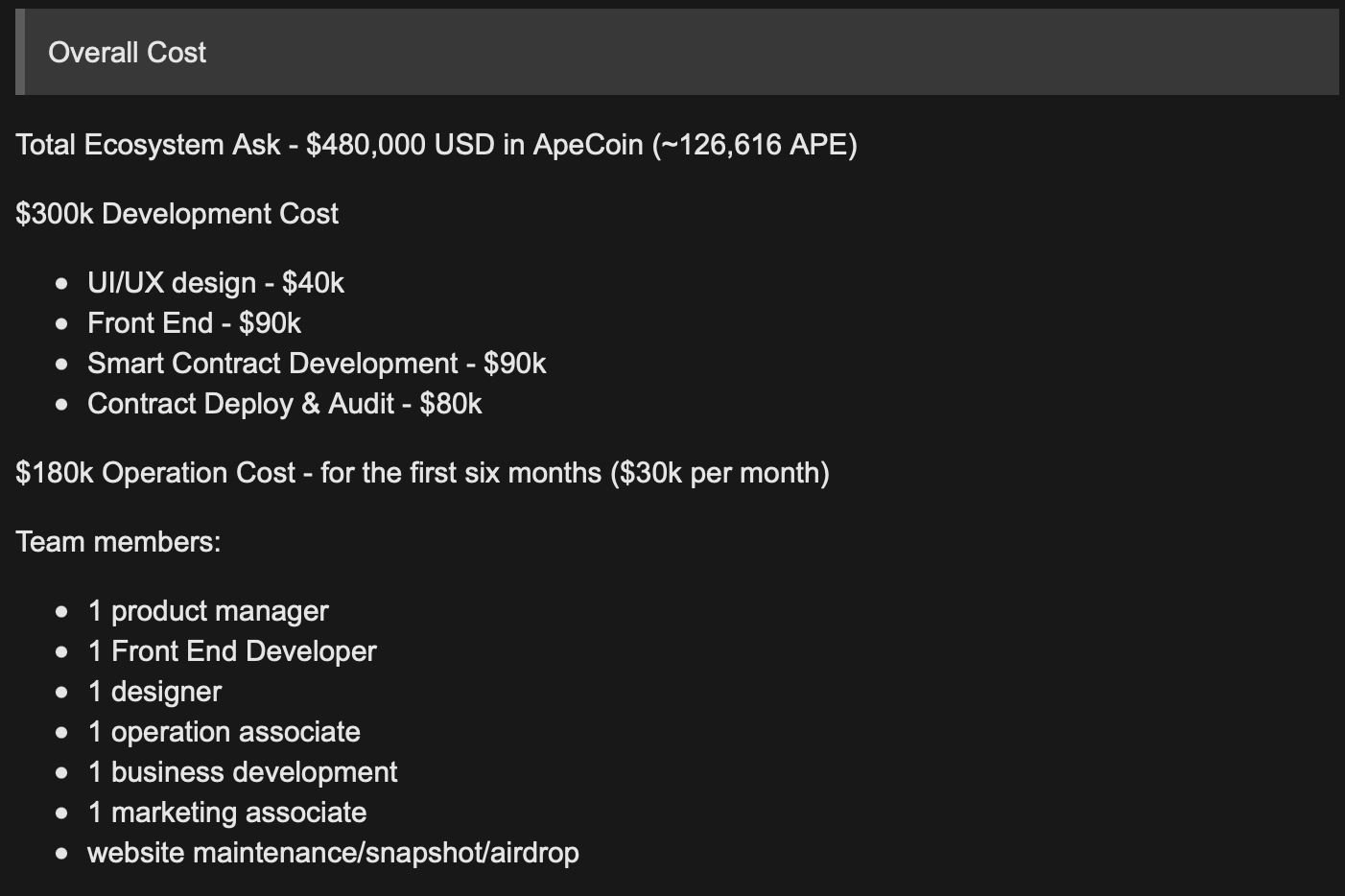The ApeCoin DAO is voting on an Ape Improvement Proposal this week that aims to help promising projects in the $Ape ecosystem grow into sustainable businesses.
AIP-209, titled "Ape Accelerator Powered By ApeCoin," is an ecosystem allocation proposal written by Web3 tech company and Animoca Brands subsidiary, Forj.
"The Ape Accelerator (Ape Launchpad) is designed to help strengthen the ApeCoin and BAYC ecosystem by incubating and facilitating projects that contribute to and utilize the ApeCoin and BAYC IP ecosystem growth," the company wrote. "Projects looking to launch through the Ape Accelerator will require $APE tokens to submit a proposal, and holders of $APE and BAYC Ecosystem NFTs will be able to access the launchpad to invest in these projects."
The Forj company believes that by creating a launchpad for the ApeCoin ecosystem, they can not only help builders create sustainable businesses but also give ApeCoin DAO contributors the chance to get in early on promising Ape-themed projects.
"The Ape Launchpad aims to maximize the Ape community's benefit, facilitate the use of ApeCoin, and together, as a community, contribute, fund, and empower the future of decentralization."
In total, Forj is asking the ApeCoin DAO to allocate $480,000 USD or 126,616 $Ape to fund the creation and first six months of operational costs for its Ape Accelerator.
Take a look at the cost breakdown below:


